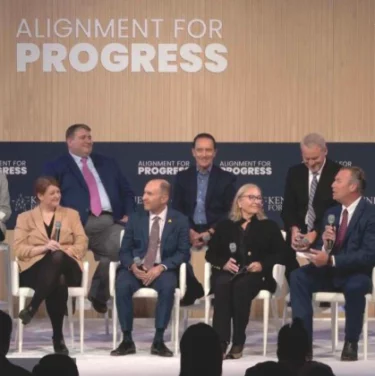The question may seem simple: what motivates you to get out of bed each day? For many, the answer comes easily – whether it be family and friends, career or education, or simply just a good ol’ cup of hot coffee. For some – often those managing mental illness or addiction – the answer isn’t as simple. As health care professionals, we’re trained to recognize when an individual should enact a change to improve their well-being, but it’s not easy when getting up in the morning is a significant challenge for a client – or when showing up for a second appointment is rare.
Enter Motivational Interviewing (MI), an evidence-based practice that can help us engage and activate those we care for make positive health changes. The strength of MI lies in its person-centered approach: by meeting the client where they are, we’re able to elicit and support the steps towards change that are most meaningful for them. You may have already heard of MI, and you may even be trained in it. Regardless of your familiarity with the subject, proficiency in MI comes from consistent practice, re-training and coaching.
The MI approach is often like a dance – whether you’re the one leaning in or recognizing the need to lean back – the goal is to be moving in tandem. Dancing isn’t a static motion, and neither is behavior change.
Hundreds of organizations have already realized the benefits of MI. As part of the National Council and Hilton Foundation’s Reducing Adolescent Substance Abuse Initiative, the Bill Wilson Center in California is using MI to boost their Screening, Brief Intervention and Referral to Treatment services for addressing substance use among adolescents. At a recent training, attendees included residential counselors, case managers, outpatient supervisors, intake coordinators and interns. While their job titles and level of experiences differed, the participants had one thing in common. They learned that change most often begins with a shift in mindset – for ourselves and our clients.
What were the takeaways? National Council trainer Pam Pietruszewski led the California community-based organization through exercises and discussions that all tied back to the four fundamental processes of MI – Engaging, Focusing, Evoking and Planning. Attendees learned about the power of “reflection”. More than just repeating exactly what your client has expressed, reflection requires taking what you’ve heard and finding opportunity for forward movement. It’s not just about noting the problems, but also about listening for expressions of desire, need and ability to generate a positive outcome. It’s about empowering the client to move in the direction of change at a level that is attainable for them. It’s about looking for the proverbial flowers amongst the weeds.
Motivation ultimately has to come from within. Participants from the Bill Wilson Center learned that using MI as a conversational method can help guide and support the people they serve to come to their own conclusions and discover the inner drive they had all along. Thanks to MI and Pam’s guidance, they’re one step closer to helping their clients answer the question of what gets them out of bed.
Are you ready to join the movement? Learn more about Motivational Interviewing here.




